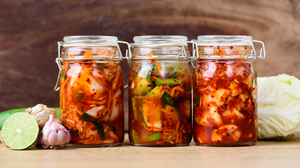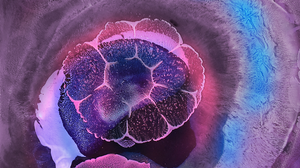There’s no doubt coping with difficult (and often embarrassing) gut issues can cause stress but unfortunately the story often doesn’t end there. Without realising it you may be caught up in a cycle of ever-increasing symptoms being impacted by your mood, your diet and the health of the bacteria in your gut. By learning to recognise the cycle, you can start to break free from it.
How does stress affect gut health?
Stress isn’t just an emotional problem, it also affects our physical health and can cause an imbalance in the bad and good bacteria in our gut – both directly and indirectly as a result of the poorer food choices we tend to make when stressed (think high fat, high sugar comfort foods and increased alcohol consumption).
The resulting imbalance in gut bacteria can not only increase digestive issues - such as bloating, abdominal pain, constipation and diarrhoea - but it can also cause more stress.
How does gut health affect stress?
The gut and brain are connected by the vagus nerve which relays signals in both directions. When our gut bacteria are balanced and diverse, they create mood enhancing neurotransmitters - including dopamine, serotonin and GABA – and send them along the vagus nerve to the brain, where they help us feel better. When our gut is out of balance, and we are low in these neurotransmitters, we are more prone to stress, anxiety and depression.
How can we break the cycle?
The ‘psychobiotic diet’: We can’t always avoid life’s stressors but by eating well we can boost our mental reserves to help deal with them. I often recommend a plant-based predominant ‘psychobiotic diet’. It’s a way of eating to boost your gut bacteria and, in turn, your mood. At the base of the psychobiotic food ‘pyramid’ are the foods we should eat the most of, every day – fruit, vegetables and whole grains. The next levels on a traditional psychobiotic diet are made up of fish, seafood and fermented foods to be eaten often, followed by poultry, dairy and eggs which are to be eaten only weekly, and finally sugar and red meat which should only be eaten rarely. I recommend keeping the base of fruits, vegetables, wholegrains and fermented foods - whilst substituting the other foods, where feasible, with legumes, nuts and seeds, herbs and spices and soy-based foods like tofu and tempeh. A predominantly plant-based diet, full of gut-friendly prebiotics, is most effective for mental health, stress and overall health.
Food rules for sensitive guts: Sometimes foods that are good for the gut and for mental health - such as some fruits, vegetables and wholegrains - can lead to bloating and pain in those with sensitive guts. However, cutting out food groups can be counter-productive and negatively impact the balance of gut bacteria. Keep a detailed food, mood and symptom diary for a week to get a clearer insight into triggers and request a referral to a dietitian to help you control your symptoms while ensuring the healthiest diet possible. An evidence-based food supplement containing ‘good’ bacteria may also help support your gut and break the cycle.
Find new coping mechanisms: What works best will vary from person to person but yoga, mindfulness and talking therapies such as CBT have all been shown to be effective in managing stress. Simple breathing exercises may also help by boosting the tone of the vagus nerve and the good bacteria in the gut.
Get the right help: It’s important to see your GP to check for underlying causes of gut and mood issues. They may also be able to refer you to a dietitian or for psychological services. Nutritional psychiatrists, certified lifestyle medicine physicians and functional medicine doctors can also be helpful, showing you the best ways to help yourself.








